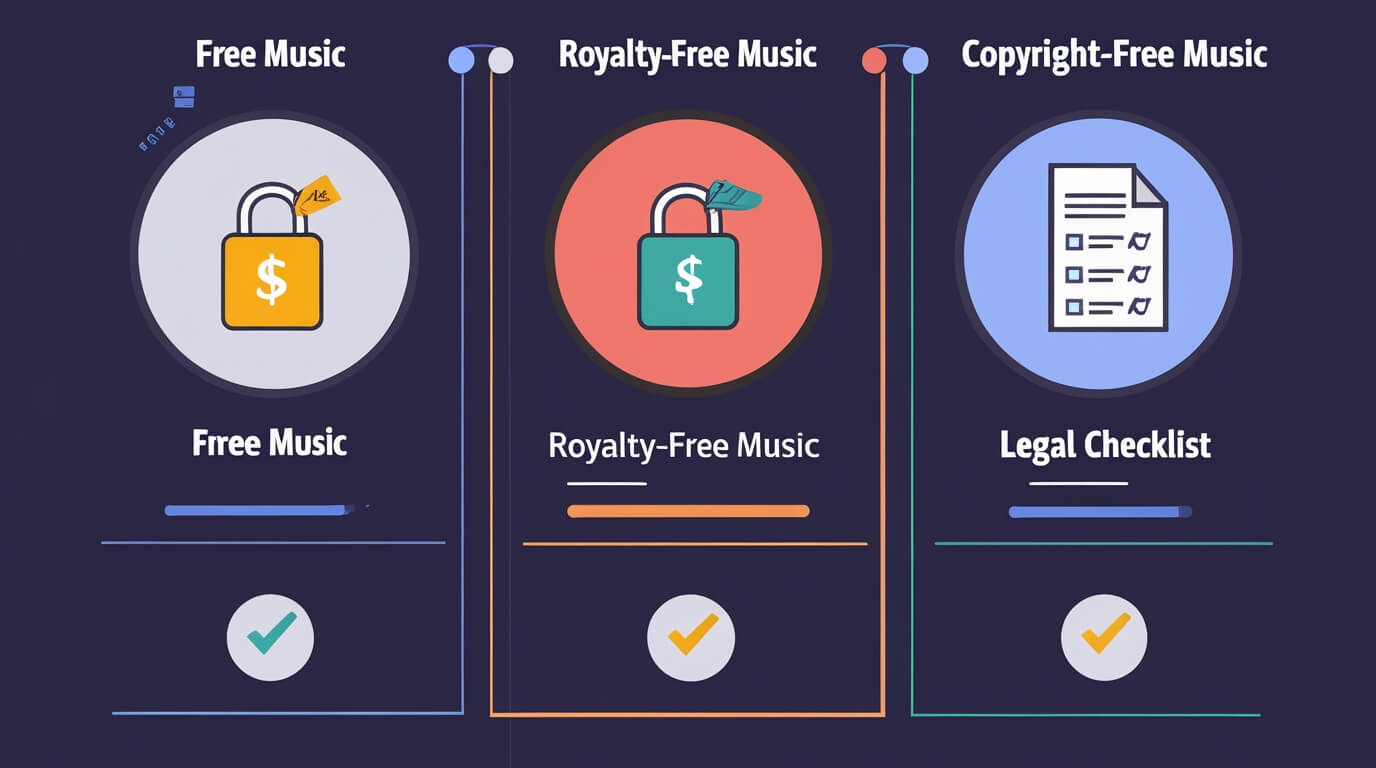August 01, 2025

Navigating music licensing is tricky—especially when terms like “free music,” “royalty-free,” and “copyright-free” are often used interchangeably. But these terms mean very different things, and misunderstanding them could get your content demonetized—or worse, flagged with copyright strikes.
If you’re a content creator, business owner, musician, or filmmaker, knowing the difference is essential for legal, stress-free music use.
“Free music” usually means you can download or use a track without paying money upfront. However, “free” does not mean unrestricted.
⚠️ Important: Many “free” songs are still under copyright. Always review the license before using.
“Royalty-free music” means that once you acquire a license (free or paid), you can use the music without paying ongoing royalties per use or per viewer/listener.
Example: You download a royalty-free track from a stock music library and use it in your podcast intro—legally and repeatedly, without paying per episode.
“Copyright-free” means the music is not protected by copyright—usually because the rights have expired or the creator voluntarily waived them.
When it comes to using music in your content, ignorance isn’t bliss—it’s risky. Always know what type of license you’re working with, and when in doubt, use verified platforms that clearly explain the usage rights.
Whether you're creating YouTube videos, podcasts, ads, or apps—making the right choice in music licensing protects your content and your reputation.
Stay up to date with the latest tips, expert insights, product reviews, and step-by-step guides to help you grow, create, and succeed—no matter your industry or passion.